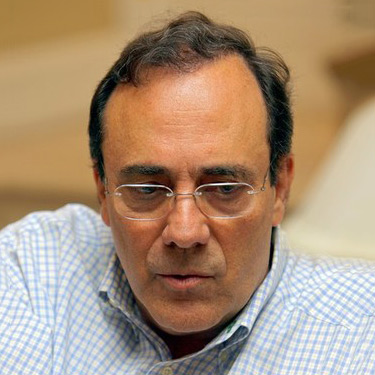Almost 30 years ago, Armas Marcelo, a novelist forever gifted with an open spirit, summoned to the Canary Islands a pluralistic group of intellectuals from the Ibero-American world to discuss the hottest issues then affecting our societies. Naturally, I attended and wrote a paper about the repression against writers, believers, and homosexuals in Cuba, and I asked for signatures for an open letter in which we demanded that poet Heberto Padilla be allowed to leave that country.
The reaction was lamentable. Shouts, insults, boos, and ridiculous threats against my life were uttered. “This could cost you dearly,” Ariel Dorfman told me with a twisted Humphrey Bogart grimace (The Godfather had not yet been released). I had not said a single lie; I had not exaggerated one whit the climate of terror that existed—and still exists—in Cuba, but the Marxist left was not willing to admit it. To its supporters, everything I said, despite the evidence, was fabrication from the Pentagon. It was then when a very young Spanish writer, unknown to me, asked to speak and delivered a fabulous defense of the Cuban democrats and an impassioned denunciation of the communist barbarians in words that were absolutely persuasive.
It was the first time I had heard his name, Federico Jiménez Losantos. He spoke with the paradoxical authority derived from his recent militancy in the Communist Party. He had gone through the CP, tilted even farther to the left in Red Flag, and knew the Chinese experience firsthand, until he finally broke away from that nefarious ideology. In his opinion, it was abominable for the intellectuals in our scene, who should be defending freedom and supporting the victims, to become accomplices of the tyrannies.
Following Federico’s example, and probably encouraged by his resolute eloquence, several voices spoke up, among them Sánchez Dragó, Jorge Semprún, Xavier Domingo, and a few other writers who had something in common: they all came from the left. They had been communists in their early youth and later, nauseated, they had separated from the doctrine and the party, denouncing the inflexibility of its leaders and, above all, the divorce between theoretical socialism and its real manifestation. While the communists talked about the bright future awaiting post-capitalist society, the societies they controlled were repugnant dungeons, as Solzhenitsyn warned in The Gulag Archipelago.
These remembrances came to my mind after I read an extraordinary book, Why I Quit Being a Leftist, published in Madrid by Ciudadela Press, written and compiled by two of the finest young Spanish journalists, Javier Somalo and Mario Noya, with a foreword by Javier Rubio—a good renegade painter and a magnificent essayist—and an epilogue by César Vidal, our Isaac Asimov. Vidal is an amazingly erudite man who speaks eight languages fluently and, although not yet 50, has published 160 valuable books of all genres in an exceedingly wide spectrum, ranging from a biography of Lincoln to the bloody details of the massacre of thousands of innocent prisoners at the hands of the communist Chekas during the Spanish Civil War.
Somalo’s and Noya’s book is composed of testimonies by and interviews with ten intellectuals who began by joining many of the varieties of the left: Federico Jiménez Losantos, Amando de Miguel, Pío Moa, Carlos Semprún Maura, Horacio Vázquez-Rial, Juan Carlos Girauta, José María Marco, Cristina Losada, José García Domínguez, and Pedro de Tena. The most radical among them was undoubtedly Pío Moa—today a very successful historian and debater—who in his youth was an active member of GRAPO, an organization of ultra-Marxist crazies who engaged in raids and murders. In contrast, the most prudent and moderate are José María Marco (a very subtle essayist and historian) and Amando de Miguel, a brilliant sociologist who is also amazingly prolific. Marco and de Miguel are closer to the vegetarian type of socialism than to the carnivorous radicalism of the Leninist fauna.
What led these people (along with Octavio Paz, Vargas Llosa, Ernesto Sábato, Plinio Apuleyo Mendoza, and so many other valuable intellectuals) to abandon communism and begin to defend the values of liberty? In the first place, the painful realization that the communist governments, without exception, built societies that were very poor and brutal, from which people invariably tried to flee in desperation. All the communist experiments failed, regardless of the substrata on which they tried to erect their systems. The Germans, the Slavs, the Latin Americans (Cuba and Nicaragua), the Asians, the black Africans failed—all, without exception. Why? This was the second discovery: because communism was a theoretical blunder. It wasn’t that the doctrine was beautiful but its execution faulty. The doctrine was based on a major intellectual mistake and on a lamentable lack of morality that inevitably led to disaster and terror. That is why the more intelligent people, and those who were genuinely interested in their neighbors, abandoned it. The book Why I Quit Being a Leftist explains that with irrefutable clarity.







